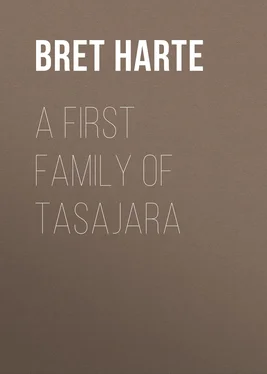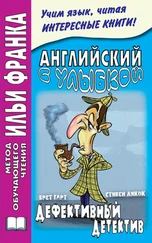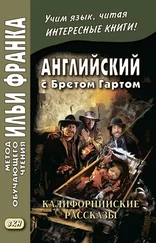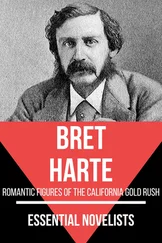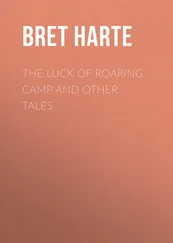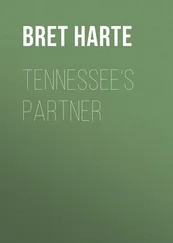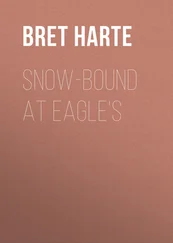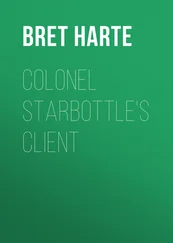Bret Harte - A First Family of Tasajara
Здесь есть возможность читать онлайн «Bret Harte - A First Family of Tasajara» — ознакомительный отрывок электронной книги совершенно бесплатно, а после прочтения отрывка купить полную версию. В некоторых случаях можно слушать аудио, скачать через торрент в формате fb2 и присутствует краткое содержание. Жанр: foreign_sf, literature_19, foreign_antique, foreign_prose, на английском языке. Описание произведения, (предисловие) а так же отзывы посетителей доступны на портале библиотеки ЛибКат.
- Название:A First Family of Tasajara
- Автор:
- Жанр:
- Год:неизвестен
- ISBN:нет данных
- Рейтинг книги:4 / 5. Голосов: 1
-
Избранное:Добавить в избранное
- Отзывы:
-
Ваша оценка:
- 80
- 1
- 2
- 3
- 4
- 5
A First Family of Tasajara: краткое содержание, описание и аннотация
Предлагаем к чтению аннотацию, описание, краткое содержание или предисловие (зависит от того, что написал сам автор книги «A First Family of Tasajara»). Если вы не нашли необходимую информацию о книге — напишите в комментариях, мы постараемся отыскать её.
A First Family of Tasajara — читать онлайн ознакомительный отрывок
Ниже представлен текст книги, разбитый по страницам. Система сохранения места последней прочитанной страницы, позволяет с удобством читать онлайн бесплатно книгу «A First Family of Tasajara», без необходимости каждый раз заново искать на чём Вы остановились. Поставьте закладку, и сможете в любой момент перейти на страницу, на которой закончили чтение.
Интервал:
Закладка:
“Who’s there?”
“Me, pop.”
“John Milton?”
“Yes, sir.”
“What the devil are you doin’ there, sir?”
“Readin’.”
It was true. The boy was half reclining in a most distorted posture on two chairs, his figure in deep shadow, but his book was raised above his head so as to catch the red glow of the stove on the printed page. Even then his father’s angry interruption scarcely diverted his preoccupation; he raised himself in his chair mechanically, with his eyes still fixed on his book. Seeing which his father quickly regained the paper, but continued his objurgation.
“How dare you? Clear off to bed, will you! Do you hear me? Pretty goin’s on,” he added as if to justify his indignation. “Sneakin’ in here and—and lyin’ ‘round at this time o’ night! Why, if I hadn’t come in here to”—
“What?” asked the boy mechanically, catching vaguely at the unfinished sentence and staring automatically at the paper in his father’s hand.
“Nothin’, sir! Go to bed, I tell you! Will you? What are you standin’ gawpin’ at?” continued Harkutt furiously.
The boy regained his feet slowly and passed his father, but not without noticing with the same listless yet ineffaceable perception of childhood that he was hurriedly concealing the paper in his pocket. With the same youthful inconsequence, wondering at this more than at the interruption, which was no novel event, he went slowly out of the room.
Harkutt listened to the retreating tread of his bare feet in the passage and then carefully locked the door. Taking the paper from his pocket, and borrowing the idea he had just objurgated in his son, he turned it towards the dull glow of the stove and attempted to read it. But perhaps lacking the patience as well as the keener sight of youth, he was forced to relight the candle which he had left on the counter, and reperused the paper. Yes! there was certainly no mistake! Here was the actual description of the property which the surveyor had just indicated as the future terminus of the new railroad, and here it was conveyed to him—Daniel Harkutt! What was that? Somebody knocking? What did this continual interruption mean? An odd superstitious fear now mingled with his irritation.
The sound appeared to come from the front shutters. It suddenly occurred to him that the light might be visible through the crevices. He hurriedly extinguished it, and went to the door.
“Who’s there?”
“Me,—Peters. Want to speak to you.”
Mr. Harkutt with evident reluctance drew the bolts. The wind, still boisterous and besieging, did the rest, and precipitately propelled Peters through the carefully guarded opening. But his surprise at finding himself in the darkness seemed to forestall any explanation of his visit.
“Well,” he said with an odd mingling of reproach and suspicion. “I declare I saw a light here just this minit! That’s queer.”
“Yes, I put it out just now. I was goin’ away,” replied Harkutt, with ill-disguised impatience.
“What! been here ever since?”
“No,” said Harkutt curtly.
“Well, I want to speak to ye about ‘Lige. Seein’ the candle shinin’ through the chinks I thought he might be still with ye. If he ain’t, it looks bad. Light up, can’t ye! I want to show you something.”
There was a peremptoriness in his tone that struck Harkutt disagreeably, but observing that he was carrying something in his hand, he somewhat nervously re-lit the candle and faced him. Peters had a hat in his hand. It was ‘Lige’s!
“‘Bout an hour after we fellers left here,” said Peters, “I heard the rattlin’ of hoofs on the road, and then it seemed to stop just by my house. I went out with a lantern, and, darn my skin! if there warn’t ‘Lige’s hoss, the saddle empty, and ‘Lige nowhere! I looked round and called him—but nothing were to be seen. Thinkin’ he might have slipped off—tho’ ez a general rule drunken men don’t, and he is a good rider—I followed down the road, lookin’ for him. I kept on follerin’ it down to your run, half a mile below.”
“But,” began Harkutt, with a quick nervous laugh, “you don’t reckon that because of that he”—
“Hold on!” said Peters, grimly producing a revolver from his side-pocket with the stock and barrel clogged and streaked with mud. “I found THAT too,—and look! one barrel discharged! And,” he added hurriedly, as approaching a climax, “look ye,—what I nat’rally took for wet from the rain—inside that hat—was—blood!”
“Nonsense!” said Harkutt, putting the hat aside with a new fastidiousness. “You don’t think”—
“I think,” said Peters, lowering his voice, “I think, by God! HE’S BIN AND DONE IT!”
“No!”
“Sure! Oh, it’s all very well for Billings and the rest of that conceited crowd to sneer and sling their ideas of ‘Lige gen’rally as they did jess now here,—but I’d like ‘em to see THAT.” It was difficult to tell if Mr. Peters’ triumphant delight in confuting his late companions’ theories had not even usurped in his mind the importance of the news he brought, as it had of any human sympathy with it.
“Look here,” returned Harkutt earnestly, yet with a singularly cleared brow and a more natural manner. “You ought to take them things over to Squire Kerby’s, right off, and show ‘em to him. You kin tell him how you left ‘Lige here, and say that I can prove by my daughter that he went away about ten minutes after,—at least, not more than fifteen.” Like all unprofessional humanity, Mr. Harkutt had an exaggerated conception of the majesty of unimportant detail in the eye of the law. “I’d go with you myself,” he added quickly, “but I’ve got company—strangers—here.”
“How did he look when he left,—kinder wild?” suggested Peters.
Harkutt had begun to feel the prudence of present reticence. “Well,” he said, cautiously, “YOU saw how he looked.”
“You wasn’t rough with him?—that might have sent him off, you know,” said Peters.
“No,” said Harkutt, forgetting himself in a quick indignation, “no, I not only treated him to another drink, but gave him”—he stopped suddenly and awkwardly.
“Eh?” said Peters.
“Some good advice,—you know,” said Harkutt, hastily. “But come, you’d better hurry over to the squire’s. You know YOU’VE made the discovery; YOUR evidence is important, and there’s a law that obliges you to give information at once.”
The excitement of discovery and the triumph over his disputants being spent, Peters, after the Sidon fashion, evidently did not relish activity as a duty. “You know,” he said dubiously, “he mightn’t be dead, after all.”
Harkutt became a trifle distant. “You know your own opinion of the thing,” he replied after a pause. “You’ve circumstantial evidence enough to see the squire, and set others to work on it; and,” he added significantly, “you’ve done your share then, and can wipe your hands of it, eh?”
“That’s so,” said Peters, eagerly. “I’ll just run over to the squire.”
“And on account of the women folks, you know, and the strangers here, I’ll say nothin’ about it to-night,” added Harkutt.
Peters nodded his head, and taking up the hat of the unfortunate Elijah with a certain hesitation, as if he feared it had already lost its dramatic intensity as a witness, disappeared into the storm and darkness again. A lurking gust of wind lying in ambush somewhere seemed to swoop down on him as if to prevent further indecision and whirl him away in the direction of the justice’s house; and Mr. Harkutt shut the door, bolted it, and walked aimlessly back to the counter.
From a slow, deliberate and cautious man, he seemed to have changed within an hour to an irresolute and capricious one. He took the paper from his pocket, and, unlocking the money drawer of his counter, folded into a small compass that which now seemed to be the last testament of Elijah Curtis, and placed it in a recess. Then he went to the back door and paused, then returned, reopened the money drawer, took out the paper and again buttoned it in his hip pocket, standing by the stove and staring abstractedly at the dull glow of the fire. He even went through the mechanical process of raking down the ashes,—solely to gain time and as an excuse for delaying some other necessary action.
Читать дальшеИнтервал:
Закладка:
Похожие книги на «A First Family of Tasajara»
Представляем Вашему вниманию похожие книги на «A First Family of Tasajara» списком для выбора. Мы отобрали схожую по названию и смыслу литературу в надежде предоставить читателям больше вариантов отыскать новые, интересные, ещё непрочитанные произведения.
Обсуждение, отзывы о книге «A First Family of Tasajara» и просто собственные мнения читателей. Оставьте ваши комментарии, напишите, что Вы думаете о произведении, его смысле или главных героях. Укажите что конкретно понравилось, а что нет, и почему Вы так считаете.
